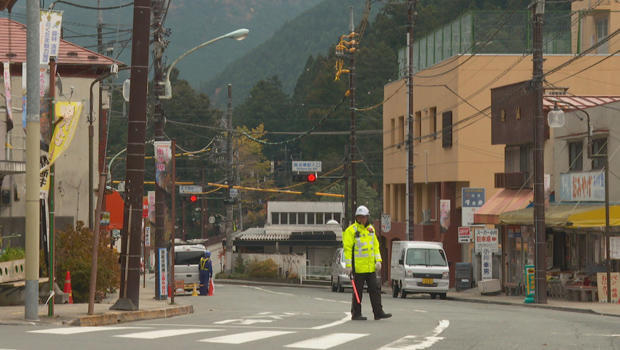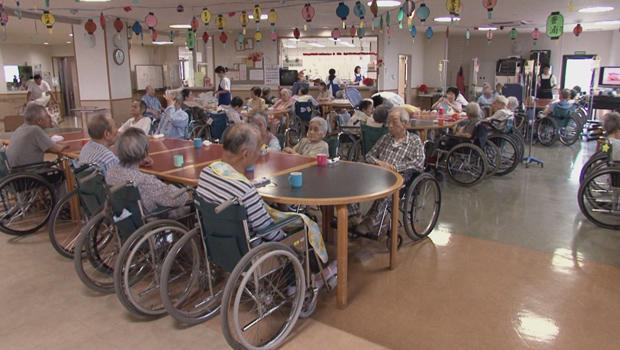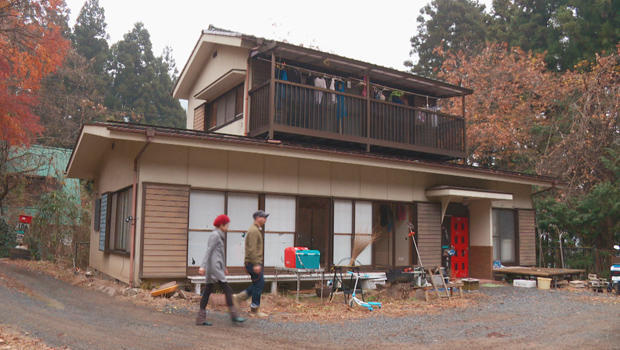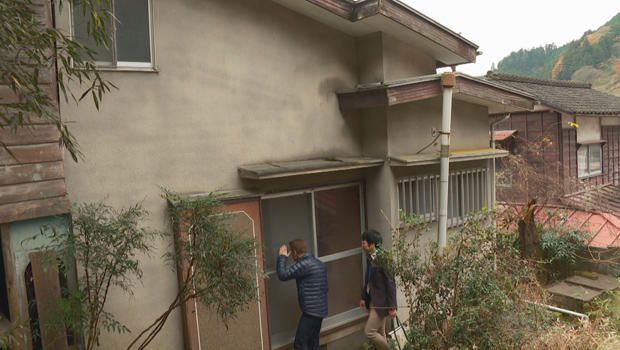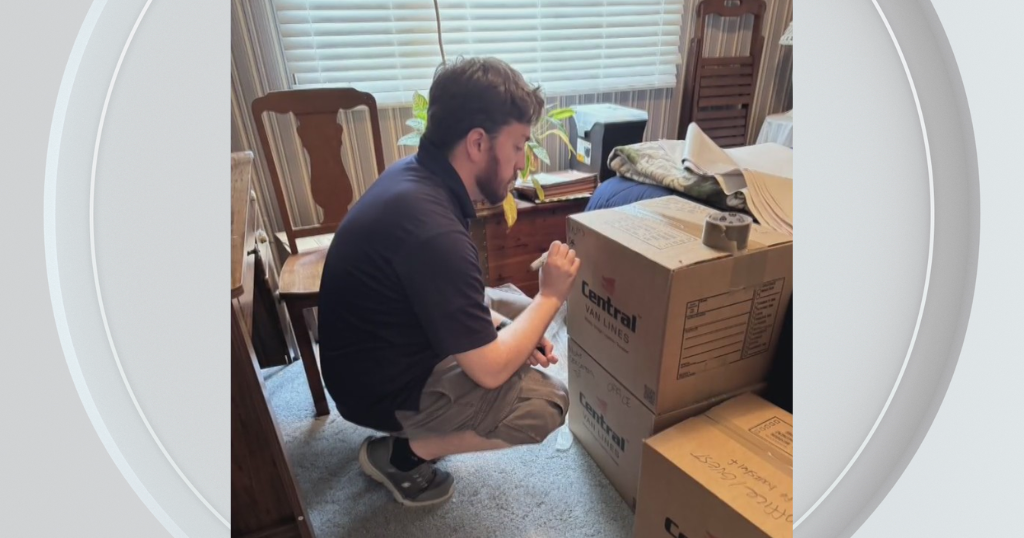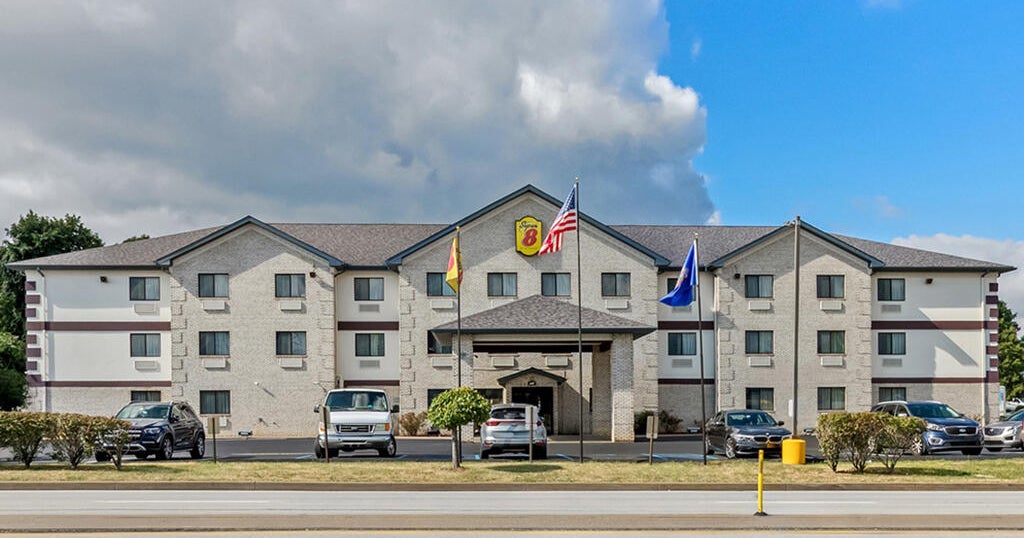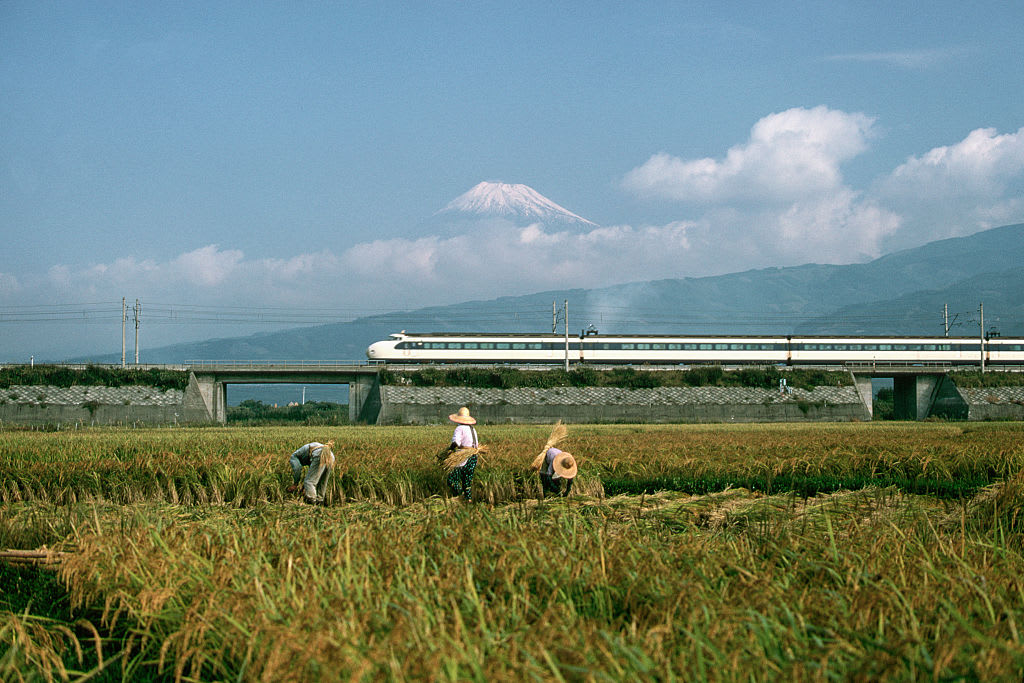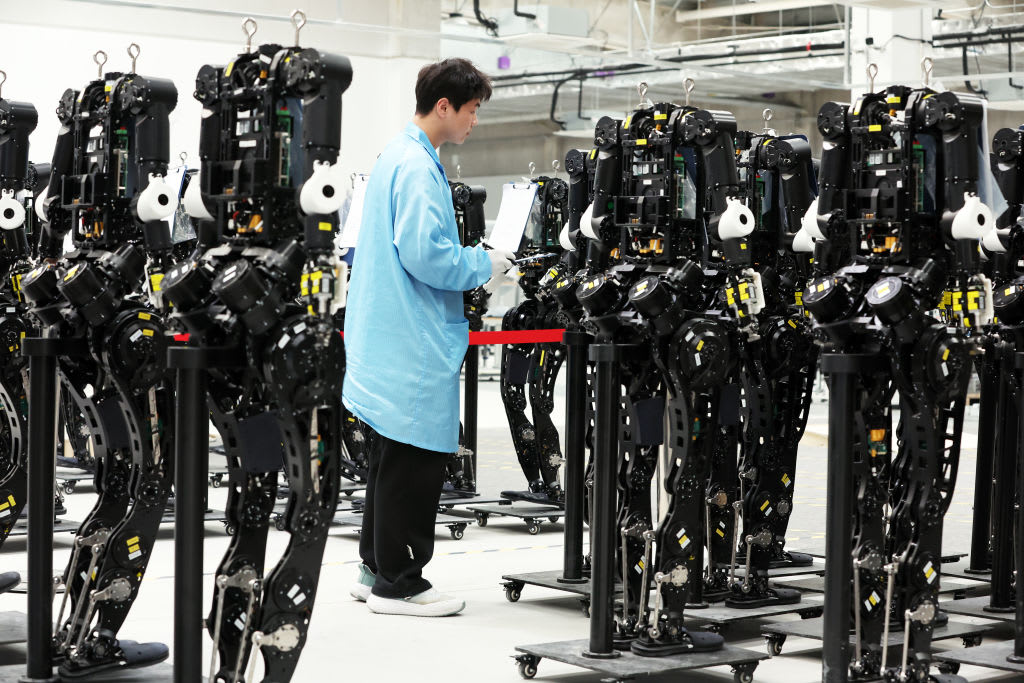One shrinking Japanese town's plan: Give away houses for free
In the hillsides outside of Tokyo is the quaint village of Okutama, Japan … and Masahiro Yamada has what is probably the most important job in town: giving away homes.
His binder lists all of the empty and abandoned house in Okutama. If someone wants to come and live in the town, they potentially could get one for free. "Yes, if you live in the house for 15 years, we will give it to you for free," Yamada said.
"That's a really good deal," said correspondent Ben Tracy.
"Yes. We want people to settle here," he replied.
Okutama isn't generous; it's desperate. In recent decades it's lost half of its population. The main street is lined with closed storefronts; most of the people who still live here have what you might call senior status; and at the local school the entire third grade has just six kids (not so long ago there were dozens).
So, the race is on to find new residents.
Yamada has even resorted to playing Cupid, fixing up a couple and then gifting them with a home. "Yes," he said. "We also gave them the house. We do it all!"
Nearly 1,000 other Japanese towns and villages face extinction because the country is simply running out of people. Japan's population peaked several years ago, at 128 million in 2011. And if the dire forecasts come true, Japan will have as few as 59 million people by 2100. That means for every two Japanese residents today, there would be less than one left by the end of the century.
So, is this really a demographic time bomb?
"The bomb is going off," said John Mock, an expert on population issues at Temple University Japan. He told Tracy what's happening in Japan is a preview of what many Western countries, including the United States, will soon face.
"Take out immigration from the United States, you're going to have basically a decreasing population or very close it," Monk said. "There's lots of yelling and screaming about immigration, but there's very little discussion in the United States about birthrates, and what population do you want the United States to be."
In Japan, which has historically opposed immigration, immigrants now make up less than 2% of the population. That's led to an extreme labor shortage, and it is also why you see countless old Japanese men driving taxis in Tokyo rather than young new arrivals.
The real issue in Japan is simple mathematics: too few women are having too few babies. Their reasons likely sound familiar: they are getting married later in life, and it's really darn expensive to house and educate kids.
Those decisions will take a toll on Japan's economy. The International Monetary Fund predicts Japan's GDP will shrink by 25% over the next 40 years because of its declining and rapidly-aging population.
So, what will Japan look like 50 years from now? "I don't think Japan will be as wealthy as it is now," Monk said. "Along with the population shift, the average age of Japan is going up."
So, Japan is being forced to get creative, reinventing nearly everything for what is now one of the oldest populations on the planet. Shopping centers are being retooled as massive rec centers for seniors, with stores catering to their needs. A high-tech mausoleum makes it easier for the elderly to visit their departed loved ones.
And then there are the robots. Japan's long-lasting love affair with them is paying off. Robots are being designed to make up for a lack of human workers, and are expected to take on all sorts of jobs, everything from tour guides to talk show hosts. The bots are also being deployed to work in nursing homes, and even perform funerals, due to a shortage of monks.
There is, however, no robot replacement for Masahiro Yamada in Okutama, which is OK, because his house giveaway is getting results.
About 500 people have relocated there, including a couple who received a two-story home, and also opened a coffee shop. They plan to stay for 15 years, in order to gain full ownership of their home for free.
But what also seems certain is that, during those 15 years, their small town will get even smaller.
Produced by Lucy Craft and Chris Laible.
